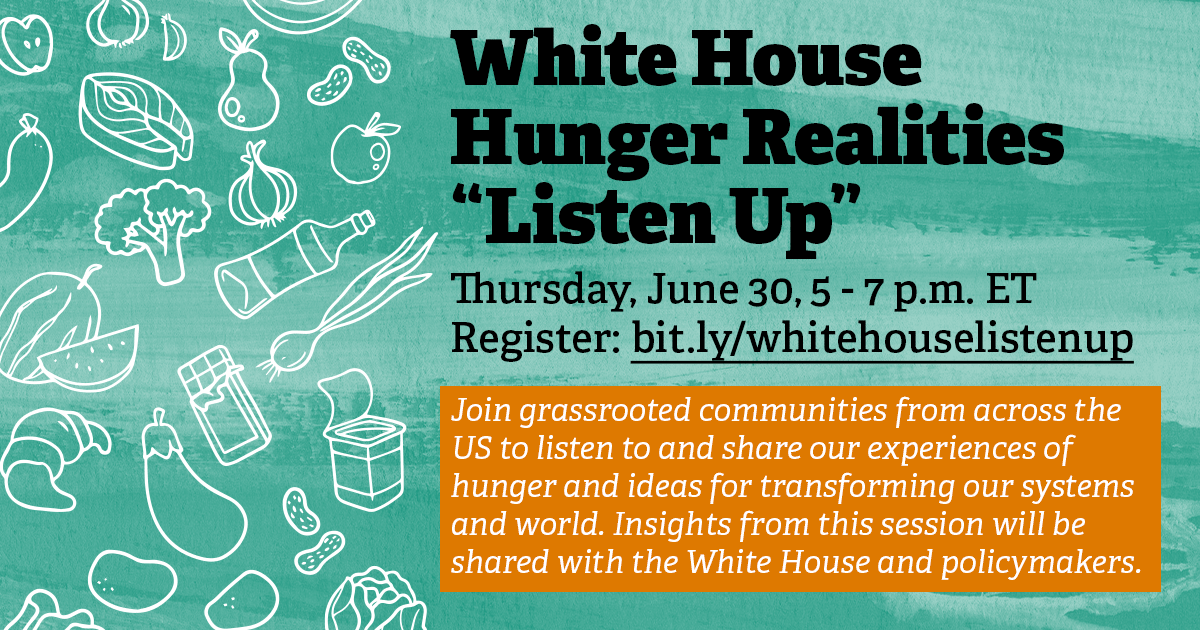The content in this post was written in partnership and support from the following organizations: North American Marine Alliance, National Family Farm Coalition, Wallace Center, Rural Coalition, and Farm Action.
Intro to White House Listening Sessions
The White House is convening a national Conference on Hunger, Nutrition and Health, only the second of its kind in US history. This conference is an historic opportunity for the voices of many to be heard in addressing the continuing inequities in our food chain and securing an equitable and healthful food future for all.
The White House is hosting open, regional listening sessions, June 2 through June 13. To participate, register here.
The above organizations have assembled key talking points and additional resources organized by the topic areas created by the White House. There are many points and there may not be time for everyone to say everything, but we hope this helps the White House hear the same things many times. For context, start with the Big Picture below, and then refer to the list of points to find the ones that you feel are the most important for you to make.
There will be other opportunities to have your voice heard. We will keep you posted as this historic event unfolds.
Big Picture
The 1969 White House Conference on Food, Nutrition and Health, informed by ‘60s social disruption, led to important federal food and nutrition programming. As the 2022 White House Conference is organized, we must remember that continued hunger and increasing health disparities are consequences of a food and farm system that has dispossessed BIPOC producers, facilitated production practices that degrade our shared natural resources, underpaid farm and food chain workers, and encouraged consolidation from farms through the supply chain to food retail.
A successful 2022 White House Conference on Hunger, Nutrition and Health must be informed by the following values and contextual understanding:
- We must dismantle persistent racial inequity in the food chain — from land theft to wage disparity, to inequitable access to nutritious food and farm programs, to disproportionate diet-related disease and inadequate healthcare access.
- We must understand the intersectionality of climate change and food systems, including the impacts of climate change on food security.
- COVID-19 has created devastating disruption of our food chain.
- We are experiencing the decrease of critically necessary human, land, water, habitat, and biodiverse agricultural resources.
- Ever-increasing corporate consolidation of our food production and distribution capacities has led to ever-increasing vulnerabilities and inequities.
- The wisdom and experience of community-based practitioners should lead proposed solutions to cultivate local food systems.
- The voices of food and nutrition-insecure eaters; family-scale, beginning, and socially disadvantaged farmers and ranchers; urban farmers; community-based and Tribal fishers; and farm and food chain workers must be centered in all policy decisions and conversations.
Read the Full Document
To access the full document, including talking points and policy recommendations, click here.
Photo Credit | Rene DeAnda via Unsplash


